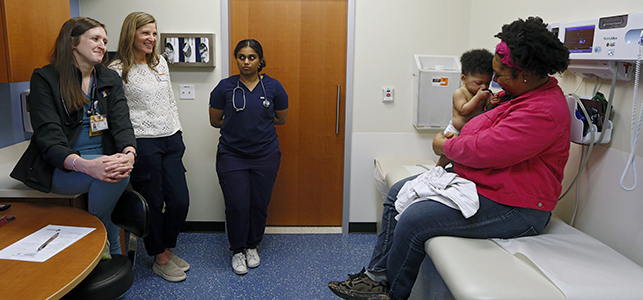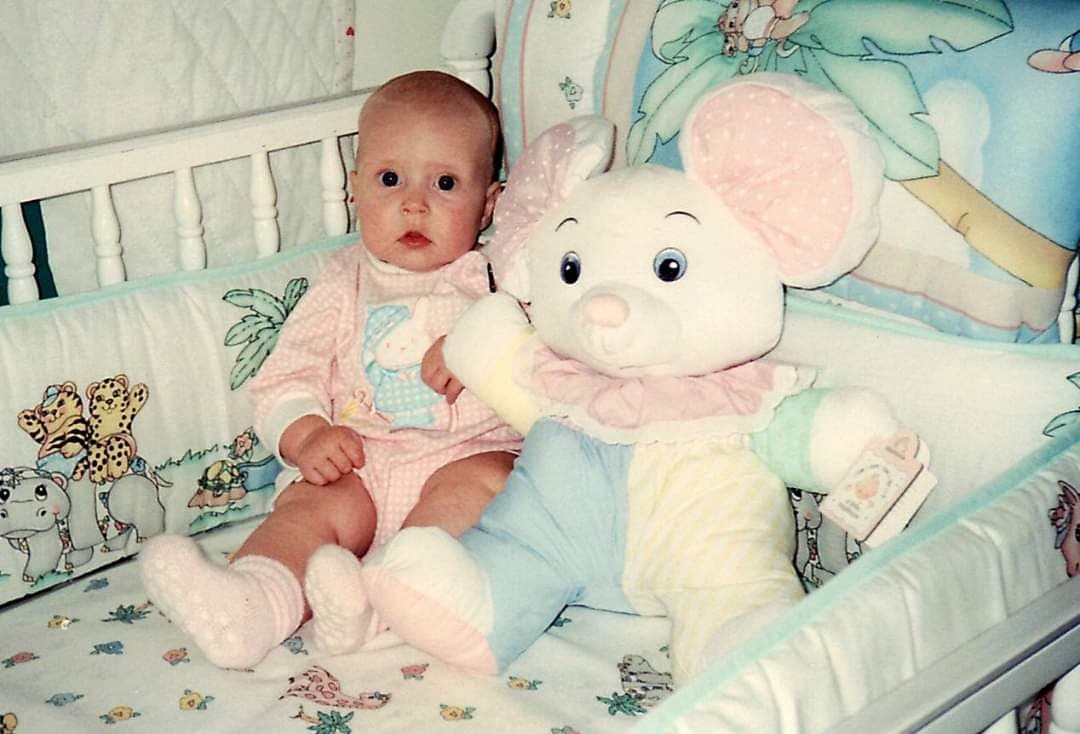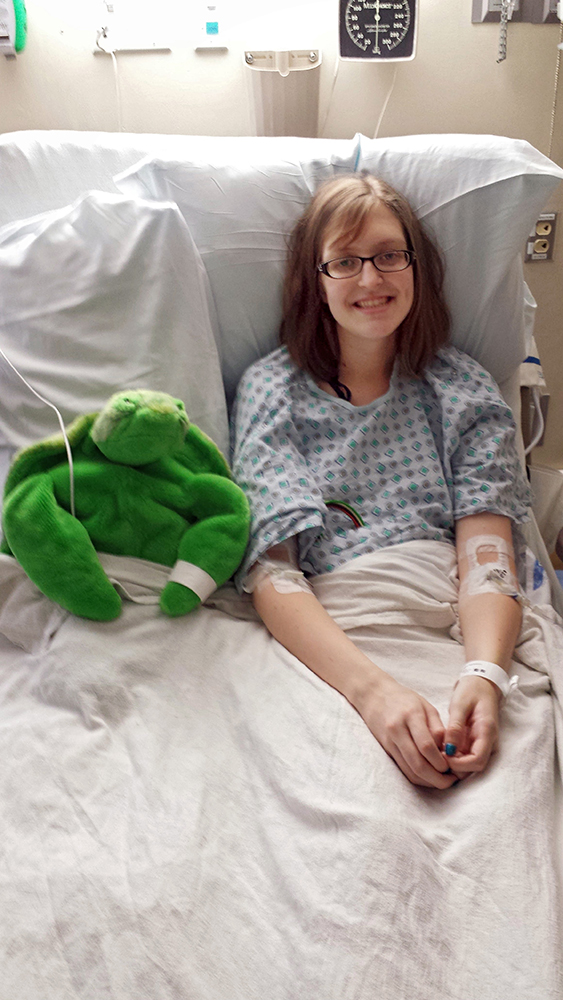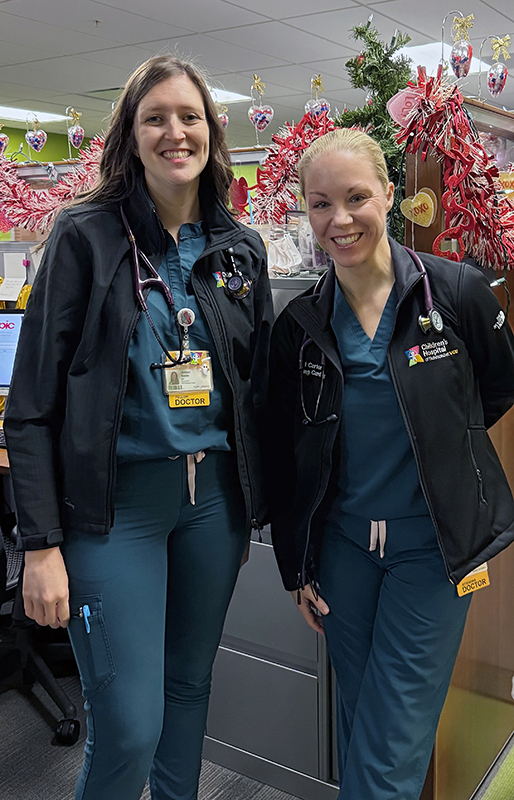
Personal experience with congenital heart disease propels pediatric cardiology fellow at CHoR
 Three-year-old Jordan Noble told her parents she was going to be “a baby heart doctor.” Fast forward to 2025 and Dr. Jordan Noble, pediatric cardiology fellow at CHoR, is well on her way.
Three-year-old Jordan Noble told her parents she was going to be “a baby heart doctor.” Fast forward to 2025 and Dr. Jordan Noble, pediatric cardiology fellow at CHoR, is well on her way.
Heart Month is doubly sweet for Dr. Noble, not because of the Valentine’s Day chocolates, but because it’s an opportunity to reflect on her journey as both a patient and medical provider for kids with heart conditions.
Meet Dr. Noble, pediatric cardiology fellow at CHoR
A congenital heart disease diagnosis as a toddler, and the plan that followed
 Noble was diagnosed with congenital heart disease when she was 3 years old and saw a pediatric cardiologist every 6 months to a year from then on.
Noble was diagnosed with congenital heart disease when she was 3 years old and saw a pediatric cardiologist every 6 months to a year from then on.
“As I got older, I was really interested in understanding my heart disease, understanding what was normal and what was abnormal,” she said. “I actually had the privilege of shadowing my own pediatric cardiologist when I was in high school.”
It was shortly after high school when an MRI showed her aorta was much larger than it appeared on previous echocardiograms. At 20, she underwent open heart surgery, followed by a 5-day hospital stay. A complication had her in and out of the hospital multiple times between her sophomore and junior years of college. That’s when her childhood declaration became more than a dream.
“It really became a plan after I had heart surgery and got to experience all the wonderful people that went into that and see what that looked like. I decided that I was for sure going to do medicine,” said Dr. Noble.
In her third year of clinical rotations during medical school she committed to pediatrics but was second guessing the ‘heart doctor’ part of her plan.
“If you had asked me when I started pediatrics residency if I was going to be a cardiologist I would have said absolutely not. During my second year of medical school, we did cardiology and I thought it was really difficult,” she added. “But once I got into my pediatric cardiology rotation and residency, it completely changed my mind within the first 2 hours of being there. First off, the patients are just fantastic. It’s one of those specialties where if you understand the anatomy and physiology, everything comes together.”
Advanced training and innate qualities add up to outstanding care for kids’ hearts
It turns out 3-year-old Jordan knew what she was talking about!
As a pediatric cardiology fellow at CHoR, Dr. Noble’s comprehensive training includes taking care of patients in the hospital, conducting echocardiograms and consults to make cardiac diagnoses, and performing catheterization and electrophysiology procedures in the lab. This experience-building is one part of what makes an outstanding doctor – the other is ingrained.
“Jordan is an absolute dream fellow. She’s intelligent and thoughtful and on top of that she’s just a super awesome human. She sees her patients as people not as diagnoses and is a fierce advocate for them and their families,” said Dr. Kerri Carter, one of the attending cardiologists training Dr. Noble.
Dr. Noble values the learning opportunities she’s received from Dr. Carter and all the cardiologists with diverse training and backgrounds at CHoR. While they have extensive expertise, she brings her own unique perspective to the table – though she’s careful to share it sparingly when connecting with patients.
“I don’t want to take away from their experience, but when I connect with them it’s to make sure they understand that someone else has been in their shoes and I know this is a scary experience for them. That fact is not lost on me,” said Noble.
A privilege to care for kids and families
 Drs. Carter and Noble enjoy each other’s company as female physicians among many men in the division. They even wear matching scrubs on their on-call weekends, a way to add a touch of lightheartedness to the long days.
Drs. Carter and Noble enjoy each other’s company as female physicians among many men in the division. They even wear matching scrubs on their on-call weekends, a way to add a touch of lightheartedness to the long days.
“I think anyone with personal experience as a patient approaches the practice of medicine with a different perspective. I think her own experience likely deepens her empathy and allows her to build relationships with patients and families using commonalities that might not be outwardly visible. I’m lucky to have her as a fellow, friend and future colleague,” said Carter.
As Dr. Noble nears the end of her years-long training, any doubt she had about her career path is now history.
“I remember all the things the fellows and the cardiologists did for me and how highly I viewed them and think about how much of a privilege it is to be able to take care of these patients and their families,” Noble added. “I get to take care of some of the sickest patients in the hospital every day and they’re some of the most resilient kids I know.”
